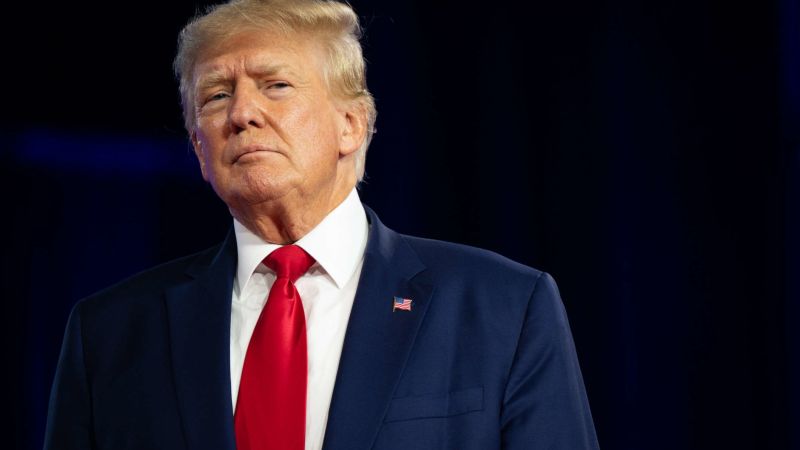Prominent legal scholars argue that Donald Trump should be barred from the presidency due to his actions to overturn the previous election. This constitutional argument is gaining traction and sparking a conversation about the Constitution and the 2021 insurrection. The scholars base their arguments on the 14th Amendment, which excludes from office anyone who engaged in insurrection or rebellion. They believe that Trump’s efforts to overturn the election and the resulting attack on the Capitol make him ineligible to serve as president ever again. This issue is being described as the most important constitutional issue of our day. While not all in the legal community agree, the argument is likely to grow as we approach the 2024 election season. The case for disqualification is supported by law professors and members of the Federalist Society, who argue that Trump’s role in the attempted overthrow of the election and the events leading to the January 6 attack disqualify him from holding office again. The historical intentions of the 14th Amendment, which barred Confederates from holding office after the Civil War, further support this argument. While these articles from legal scholars are currently opinions, it’s possible that the court systems in various states could be asked to examine Trump’s viability as a candidate in 2024. The question of Trump appearing on ballots might ultimately have to be decided by the Supreme Court. The process that will play out over the coming year could lead to social unrest and even violence, but
Legal Scholars Argue: Should Trump Be Barred from the Presidency?
The presidency of Donald J. Trump has been one of the most controversial and divisive in American history. From his inflammatory rhetoric to his questionable policy decisions, Trump’s tenure has left many questioning his fitness for office. As his term came to an end, legal scholars have engaged in a heated debate over whether Trump should be barred from holding the presidency in the future. This article aims to explore the arguments put forth by legal experts on both sides of this contentious issue.
Those in favor of barring Trump from the presidency argue that his actions during his term have demonstrated a disregard for the rule of law and a willingness to undermine democratic institutions. They point to his repeated attacks on the judiciary, his refusal to accept the results of the 2020 election, and his alleged incitement of the Capitol insurrection as evidence of his unfitness for office. These scholars argue that allowing Trump to run for president again would pose a significant threat to the stability and integrity of the American political system.
Furthermore, proponents of barring Trump contend that his behavior during his presidency may have violated various laws, including obstruction of justice and abuse of power. They argue that holding him accountable for these alleged offenses is crucial to upholding the principles of justice and ensuring that no one is above the law. By preventing Trump from seeking the presidency again, they believe that the nation can send a clear message that such behavior will not be tolerated.
On the other hand, those who oppose barring Trump from the presidency argue that doing so would set a dangerous precedent and undermine the democratic process. They contend that the decision of who should hold the highest office in the land should ultimately be left to the voters, not to legal scholars or politicians. They argue that if the American people believe Trump should be given another chance, they should have the right to make that choice.
Additionally, opponents of barring Trump argue that the Constitution does not explicitly provide for disqualifying a former president from seeking re-election. They assert that any attempt to prevent Trump from running again would require a constitutional amendment or a significant reinterpretation of existing law. They caution against using legal mechanisms to target specific individuals, as it could open the door to potential abuse of power in the future.
In conclusion, the question of whether Donald Trump should be barred from the presidency is a complex and contentious one. Legal scholars on both sides of the debate present compelling arguments, each with its own implications for the future of American democracy. As the nation grapples with this issue, it is essential to engage in a thoughtful and informed discussion that respects the principles of justice, the rule of law, and the democratic process. Ultimately, the decision on whether Trump should be allowed to run for president again rests with the American people, who will have the opportunity to express their views through the electoral process.








